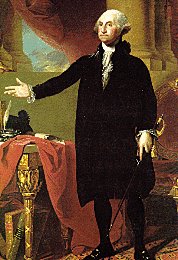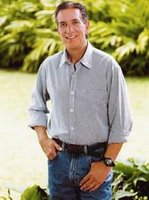 EXCLUSIVE: Romero Barceló says…
EXCLUSIVE: Romero Barceló says…
By Carlos Romero Barceló
Of Caribbean Business
When the Young Bill, which defined three status options for Puerto Rico, was filed, the leaders of the commonwealth status, the pro-independence leaders, the self-appointed political “gurus” and almost all of the media predicted the bill never would be passed by the House of Representatives. The conventional wisdom in political circles in Puerto Rico and in the media was that the Young Bill was dead at birth.
The lack of knowledge or understanding as to the legal, constitutional, and political relationships of Puerto Rico to the 50 states of the union was overwhelming. The number of representatives and senators, who really understood and were aware of the relationship between us, was less than one in six or seven. There were quite a few members of Congress who didn’t know Puerto Ricans are U.S. citizens by birth. Many didn’t know Puerto Ricans were subject to the draft before the Armed Forces became volunteer forces. Most congresspeople and senators were unaware of the fact that residents of Puerto Rico weren’t subject to federal income tax for income earned in Puerto Rico; nor did they know we received many of the benefits of federal programs even through we didn’t pay federal income taxes.
The incredible ignorance about our political, legal, and constitutional relationship was one of the biggest obstacles we faced in our endeavor to pass the Young Bill in the House and to get it passed in the Senate. Even the Hispanic-Americans, or Latinos, in the nation were unaware of the importance that Puerto Rico becoming a state has to the Hispanic-American or Latino power in the nation.
The legislative hearings in the House and the Senate were an educational process for many congress members and senators. It gave me, as resident commissioner, and my staff an opportunity to educate, not only members of Congress, but also their staff members and the committee staff members. It also gave Gov. Rosselló and his staff, including PRFAA, our local legislators and many volunteers, a meaningful opportunity to educate members of Congress and their staffs as well. In the process, we found the presentation of our struggle to achieve full democracy by being granted the right to vote for president and the right to elect our proportionate number of representatives and senators to Congress, was readily understood. We wanted to participate in the democratic process of our nation. As a result, we also would assume our obligations, as full-fledged U.S. citizens, to pay federal income taxes and to serve in our nation’s armed forces.
The “Enhanced Commonwealth” status proposal, which demands a guarantee of permanent U.S. citizenship, rejects the right to vote in our nation’s elections in exchange for not paying federal income taxes while, at the same time, demands participation in the financial and economic benefits of all federal programs paid for by the income taxes of the residents of the 50 states, something looked upon with suspicion and making us appear as parasites. Many members of Congress, their staffs, the committee staffs, and the media began to perceive the “commonwealth” position as opportunistic and hypocritical. Why would a person want to be a citizen of the nation which is the world’s example of democracy, and not want to participate in the nation’s democratic process? How seriously can you take anyone who wants to receive all economic and financial benefits available, but refuses to contribute to the treasure chest that pays for those benefits?
As the legislative hearings on the Young Bill were being held and more and more people in positions of power and influence began to understand our relationship to the 50 states of the union, the more people of influence and power were convinced the status of Puerto Rico is becoming more and more unacceptable to the U.S. and to Puerto Rico. The sooner we all realize this, the better for all involved.
Against all predictions, the Young Bill was passed in the House, albeit by one vote, and everyone was surprised. In the Senate, the bill wasn’t acted upon because the majority leader of the Senate, Trent Lott, refused to allow the bill to be considered in committee. His reason was purely partisan. As he stated in a television interview, if Puerto Rico became a state, he was convinced our two senators and our six representatives would be Democrats. At the time, the resident commissioner was a Democrat (I was the resident commissioner). This time around, our resident commissioner is Republican. The Senate’s majority leader now would have difficulty validating such a partisan argument against a fellow Republican.
Another issue which time has turned into our favor is the disenfranchisement of four million Hispanic-Americans who have been U.S. citizens by birth since 1917. Since the Young Bill was under discussion in the 1990s, the Hispanic-American, or Latino, population in the U.S. has grown tremendously. Since the last decade, Hispanic-Americans in the U.S. have become the largest minority in the nation. It is now predicted that in the next decade, Hispanic-Americans will become the majority of the total population. Obviously, the political importance of Hispanic-Americans is growing by leaps and bounds.
How many congresspeople and senators can afford to deny four million Hispanic-Americans the opportunity to achieve political equality? If Puerto Rico were populated by four million Irish, four million Italians, or four million Jews who were citizens since 1917, would they still be disenfranchised? Why hasn’t the nation done anything to reach a permanent solution to our undemocratic relation with the 50 states of the Union?
It is for these reasons, and others, that the opportunity to get a bill passed by Congress, under the terms set forth by the President’s Task Force recommendations, is much more favorable this time around than when we were discussing the Young Bill in the ’90s.
During my visit to Washington, D.C., in the first week of this month of February, I visited with 13 representatives and four senators, all of whom I had talked with about the status issue at the time of the Young Bill. My experience this time was much more positive than the first time. Not only were they much more receptive to participating and voting in favor, but they felt that the way the voting is being proposed by the White House Task Force is much easier to understand and provides better arguments to convince others to support the bill.
An unexpected reason for a greater urgency to solve Puerto Rico’s status dilemma, once and for all, has been the Vieques issue. The headlines and the media reports in that issue have enormously increased Congress’s awareness that the overwhelming majority of the U.S. citizens in Puerto Rico are dissatisfied with their present status. Therefore, a solution to the dilemma should be found and Congress should do what needs to be done to make it happen. This time around, the timing couldn’t be better.
Carlos Romero Barceló is a two-term former governor of Puerto Rico (1977-84), a two-term former resident commissioner (1993-2000) and a two-term former mayor of San Juan (1969-78). He was president of the New Progressive Party for 11 years. He is now a consultant and involved in real estate, doing business as CRB Realty



 EXCLUSIVE: Romero Barceló says…
EXCLUSIVE: Romero Barceló says…





 Este domingo 5 de febrero del 2006 el Vice-Presidente de la Camara, Epi Jr , radico su candidatura a presidente municipal del PNP en Carolina para luego ser ratificado candidato a la Alcaldia de Carolina. Todo el Liderato de Carolina estubo presente para la actividad. Otros presidentes de precinto que radicaron fueron los de los precintos 106,107 y 108. En la actividad se demostro que la movida en Carolina esta con Epi Jr.
Este domingo 5 de febrero del 2006 el Vice-Presidente de la Camara, Epi Jr , radico su candidatura a presidente municipal del PNP en Carolina para luego ser ratificado candidato a la Alcaldia de Carolina. Todo el Liderato de Carolina estubo presente para la actividad. Otros presidentes de precinto que radicaron fueron los de los precintos 106,107 y 108. En la actividad se demostro que la movida en Carolina esta con Epi Jr.

 The Unfinished Business of American Democracy
The Unfinished Business of American Democracy 
